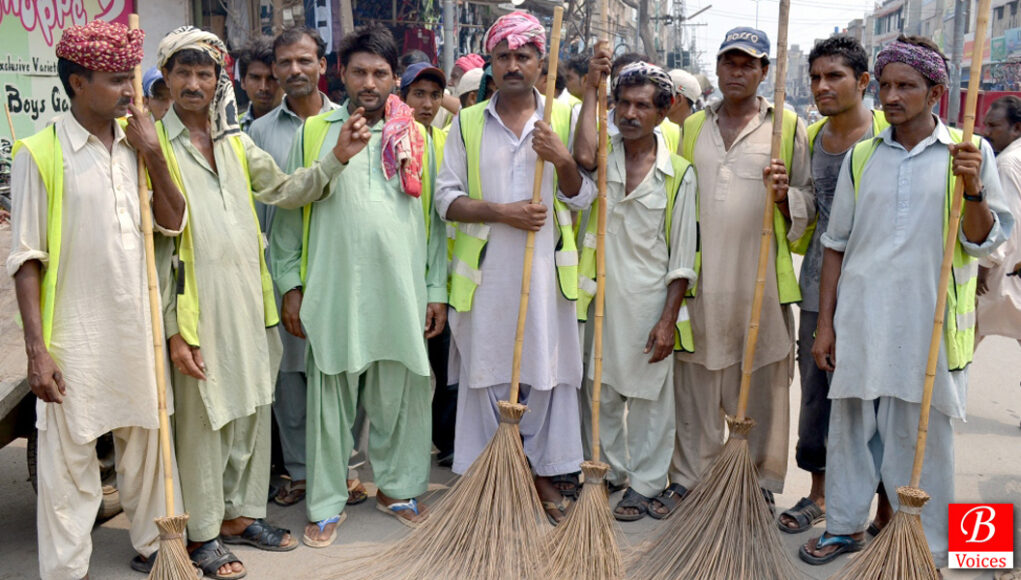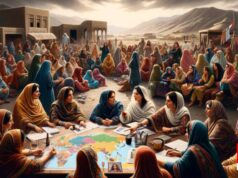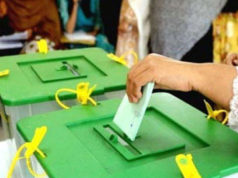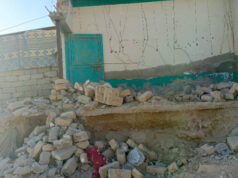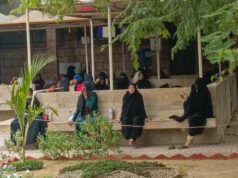Ali Baloch
QUETTA: Sunny, a young Christian sanitary worker, is perhaps oblivious to the hazards of his profession which was passed to him from his father. One of the reasons for his oblivion is that he has been working as a sanitary worker for the last several years, and most of his family members are either associated with sanitary work or with other such other menial jobs in Quetta, the provincial capital of Balochistan.
Speaking to Balochistan Voices, he says that this is not about his happiness or satisfaction with his profession. “Instead,” he adds after a brief pause, “The job has been providing a means to him and his aged parents.”
Sunny has been named after the famous film actor Sunny Deol during his early age. “My father still loves the actor, which is why he named me after him,” he further tells, adding it has become his name since then in his Mohalla and at his workplace.
Like most of other his fellows, Sunny is not educated. He also cleans up latrine gutters and does other such works. But unfortunately, he and his colleagues are not much aware of the safety kits and equipment. In reply to a question, he opines if diseases have to come, they come whether one works or sits at home, and therefore instead of sitting at home, I come out to work. “If it had been the case, my father would have died too, but he is still alive after working as a sanitary worker for years,” he adds.
At the time of the British arrival in Quetta, the city used to be a small village. Britishers dominated the city, and they started developing it as a cantonment town. As it is said, the local Muslims, who included the Baloch and Pashtun, did not want to do menial jobs, say, work as sanitary workers. As a result, British rulers brought with themselves lower caste Christians from undivided Punjab then. Since then, the Christians have been living in Quetta and elsewhere too in the province to work as sanitary workers, and sweepers, among other menial jobs. As of now, according to the 2017 census, the total number of Christians is 33,819.
But unfortunately, the Covid-19 situation further aggravated the matters, and Christians, despite working as sanitary workers, started worrying for their lives. Like Sunny, Sami James says they continued to work despite dangers to their lives. “We had to console ourselves that virus would not do anything to us,” James recalls, adding: “At the time, despite the peak of Covid-19, we used to work as sanitary workers.”
James and Sunny further tell Balochistan Voices that an empty stomach has always compelled them to work for earning a livelihood. “Otherwise our families will die of hunger,” Sunny adds. In a research article titled Discriminated in Society and Marginalized in Media: Social Representation of Christian Sanitary Workers in Pakistan it is argued that sanitary workers are globally marginalized both in media and society. Such discrimination is often amplified when such essential workers belong to a religious minority in Muslim majority societies such as Pakistan.”
In Quetta, almost all the sanitary workers are Christian: one of the persecuted religious minorities. They are discriminated and under paid. Above all, they work in dangerous conditions without protective gear (masks, boots, and gloves). Despite it and being underpaid, most of them are dependent on loans.
Wherever they work, they are treated inhumanly and are called derogatory remarks such as “Bhangi”.
Like other Christian workers, it is sad to note that sanitary workers do not have much knowledge about the PPE (personal protective equipment) to wear during their work, so much so they do not have access to them. “We wear plastic shoves and gloves,” responds sunny to a query. “Actually, the government needs to provide these to us,” he further says, adding,“As you know, the government cannot provide health and education, so how can it provide us safety equipment?” He questions, saying, “Which is why we are on our own.”
Behram Baloch is working with Civil Society Quetta and has been raising his voice for the welfare of religious minorities. He is of the view that religious minorities had been pushed to the wall due to negligence of the government, which is not moved an inch over their plight. “They are shunned, ignored, and overlooked,” he adds.
On the other hand, it is a sad state of affairs to note that they are underpaid. Like his father who lived and financed his family with much hardship, Sunny too says that he has been facing a lot of hardship to earn a livelihood for his family, and he gets around 15 thousand rupees in a month, in the face of this skyrocketing inflation.
“We, the Christian sanitary workers, are like being on a ventilator,” he tells Balochistan Voices in his concluding remarks, adding, “We can neither live nor die.”
Share your comments!


